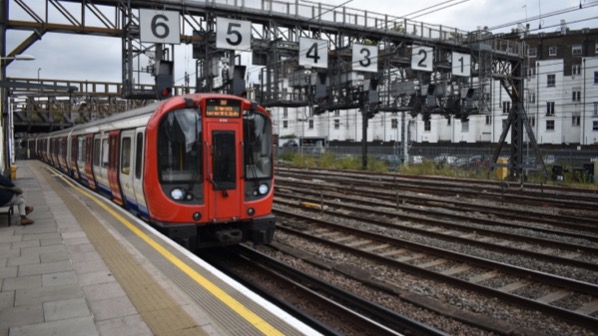TRANSPORT for London (TfL) requires a further £500m in government support to meet a shortfall in the current financial year, the transport authority announced on July 27.
Figures released in its 2021-22 budget show a reduction in the funding gap compared with last year due to higher operational savings, some deferrals of capital spend and use of TfL’s own cash.
Overall TfL assumes a full year funding requirement of £1.9bn, down from £2.7bn in the March 2021-22 budget. £1.4bn of this has already been secured through recent government funding agreements, leaving a £500m gap for the period after December 11 2021 when the most recent agreement, confirmed on June 1, expires. Talks between TfL and the government over the need for a longer-term deal continue.
TfL is aiming to become financially sustainable by April 2023. Its finances have been decimated by the pandemic as passengers abandoned the network having been advised to work from home during the Covid-19 outbreak.
TfL is making the case to be allocated government financial support over a set time period of a number of years, similar to the arrangements offered to infrastructure manager Network Rail and Highways England.
“Very difficult decisions remain as the pandemic has had a devastating effect on TfL's finances due to the reliance on fare income,” says Mr Sadiq Khan, mayor of London. “This is despite the fact that during my first term as mayor TfL reduced their operating deficit by 71% and increased its cash balances by 13%.
“If we don't get further government support in December, there could still be a £500m gap this year and so I urge ministers to treat TfL as they do the private rail operators and commit to a long-term funding agreement. This is vital not only for the good of London, but for the whole country.”
Under the current arrangement created by former mayor of London and now British prime minister, Mr Boris Johnson, TfL does not receive a regular government grant and instead relies on fare revenue for the vast majority of its income (70%). Before the pandemic it was due to deliver an operating surplus by 2022-23 having reduced the net cost of operations by almost £1bn over the previous four years while having an increased cash reserve of more than £2bn.
Journeys across all of TfL’s transport services are currently at 54% of pre-pandemic levels, but its revised budget assumes no material change to service levels on its rail, tube or bus networks compared with its financial sustainability plan published in January. However station improvements will be completed while the next phase of signalling upgrades will continue.
The budget highlights ongoing work to complete Crossrail, which is due to open in the first half of 2022 and will add 10% to central London’s rail capacity.
TfL also highlighted that station improvements at Tottenham Hale and Bank can be completed however long-term funding certainty is required to complete the fitting out of an expanded ticket hall at Elephant & Castle.
Other ongoing work includes completing the Northern Line extension to Battersea and the London Overground extension to Barking Riverside. TfL says it will also support third-party funded work on a possible Docklands Light Railway extension to Thamesmead.
It says that with government investment there could be further improvements that would help it deliver priorities including decarbonisation.
“The pandemic has shown our financial model, with such a disproportionate reliance on fare revenue, is not fit for purpose,” says Mr Andy Byford, London transport commissioner. “TfL is meeting its part of the deal with government to get back to financial self-sufficiency. I now call on government to truly engage with TfL to secure the long-term funding agreement that will drive London and the wider UK's recovery.”

